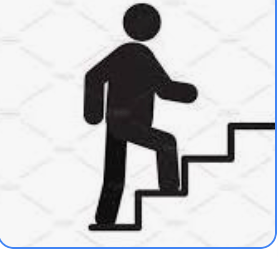Parshas Vayechi
Step Up To Greatness!
“Yisrael saw Yosef’s sons, and said, ‘Who are these?’” (Bereishis 48:8)
When our forefather, Yaakov, became ill, Yosef went with his two sons, Menashe and Ephraim, to visit him. Yosef wanted Yaakov to bless them while he was still able to.
When Yaakov was about to bless them, he asked Yosef, “Who are these?” (Bereishis 48:8) It seems as if Yaakov did not recognize Yosef’s sons. That is very strange as the Midrash Tanchuma (quoted in the Mizrachi and Ohr HaChaim) says that Menashe and Ephraim learned with Yaakov for the past 17 years! How did Yaakov not recognize them? The Midrash Tanchuma says that, indeed, Yaakov knew who they were. However, when Yaakov was about to bless them, he saw with Ruach HaKodesh, Divine Inspiration, that each of them would have some descendants who would be exceedingly evil. When Yaakov saw that, the Shechina, Hashem’s Holy Presence, departed. Yosef davened to Hashem, pleading for mercy. Thereupon, Hashem caused His Shechina to return to Yaakov, who then blessed them.
Rabbi Zalman Sorotzkin zt”l in his Oznayim LaTorah (quoted in Iturei Torah by Aharon Yaakov Greenberg) had a different understanding of Yaakov’s question, “Who are these?” Yaakov had told Yosef, in lieu of Yosef being counted as a shevet, tribe, Yaakov was elevating Yosef’s two sons, who were his grandsons, to the level of sons. Thus, two tribes would come from Yosef. Menashe and Ephraim would be counted as separate shevatim along with Yaakov’s sons. Until now, Menashe and Ephraim’s deeds had been considered proper and acceptable. However, to be elevated to the status of shevatim, they had to be on an exceptionally, high levels. Their actions would be viewed more precisely. A person on a lofty level cannot act the same as a regular person. His actions must be even more refined and more perfect. Menashe and Ephraim were great people. However, they were not yet great enough to be considered shevatim to receive these monumental brachos. That is what Rashi means when he says, “Who are these people who are not fitting for this blessing?” Whereupon, Yosef davened to Hashem, the Shechina returned to Yaakov, and Yaakov blessed them.
The explanation of the Oznayim LaTorah can help us understand another question. When Yaakov blessed his sons, he did not put his hands on their heads. Then why did he put his hands on the heads of Menashe and Ephraim when he blessed them? The Chizkuni says that Yaakov put his hands on their heads to appoint them as shevatim. The Chizkuni compares this action to when Moshe placed his hands on Yehoshua’s head. Rashi (Bamidbar 28:23) says that Moshe generously placed BOTH of his hands on Yehoshua’s head (more than he had been commanded, for Hashem had said to place one hand on him) making him a full vessel filled with Moshe’s own wisdom. It seems that here, too, Yaakov placed his hands on their heads, instilling within them the ability to be considered shevatim.
The blessing that Yaakov gave them was, “Through you, shall the People of Israel bless saying, ‘May Hashem make you as Ephraim and Menashe…’”. Many parents bless their sons with this bracha on Friday night (there is a different, befitting blessing for girls). Rav Yerucham Levovitz zt”l (in Daas Torah page 274, quoted in Messages from Rav Pam by Rabbi Sholom Smith) says that Yaakov filled this bracha with so much blessing that it overflowed. Accordingly, when one blesses his sons with this bracha, it is more than a bracha from parent to son. The bracha is also infused with the power of Yaakov’s bracha to Ephraim and Menashe. We should say this bracha with great concentration to maximize its effect.
We see that the actions of greater people must be greater than those of ordinary people.
The Jewish people are the children of Hashem. That makes us great.
We should strive to ensure that our actions are always exemplary!




